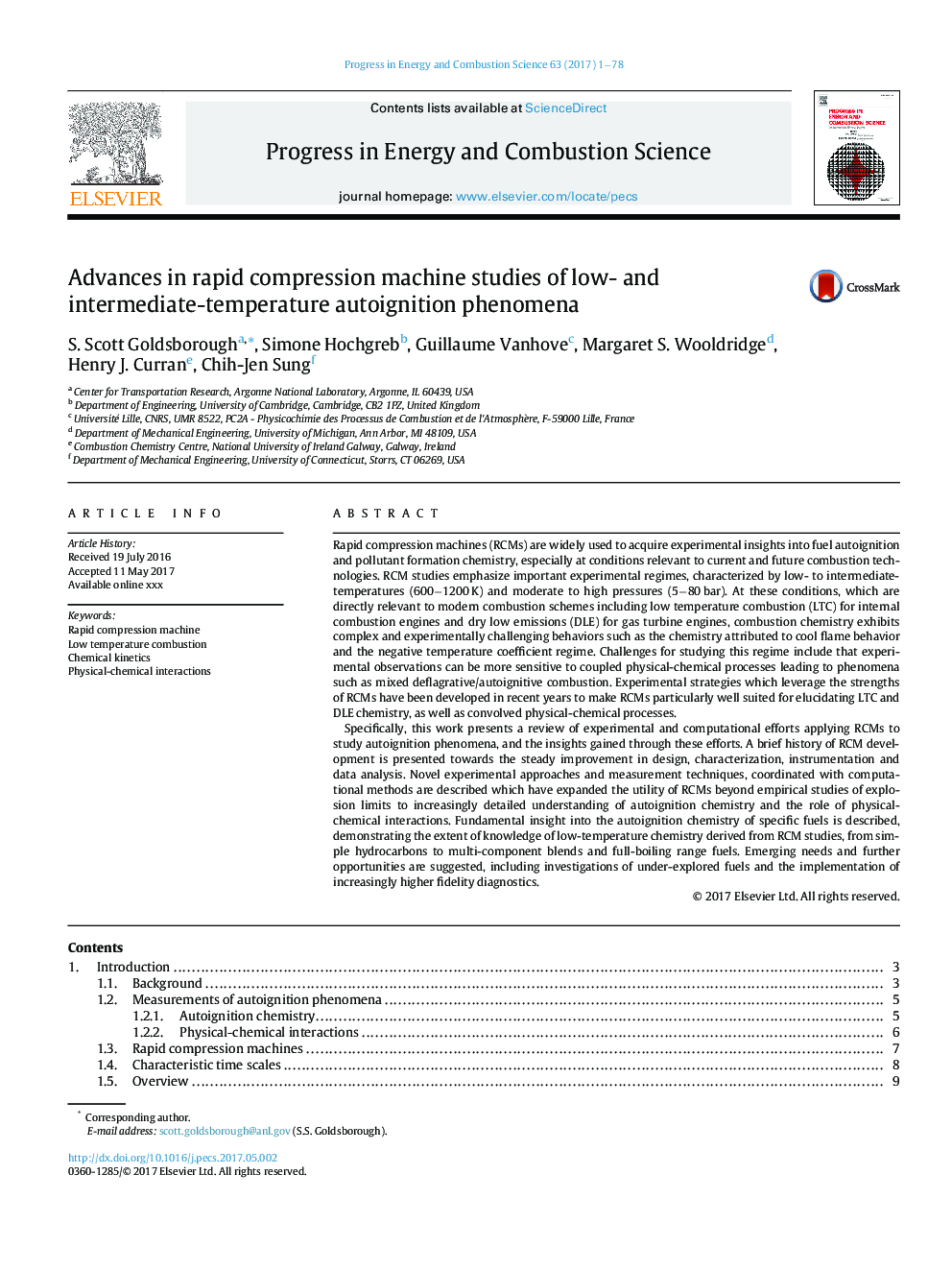| Article ID | Journal | Published Year | Pages | File Type |
|---|---|---|---|---|
| 4911012 | Progress in Energy and Combustion Science | 2017 | 78 Pages |
Abstract
Specifically, this work presents a review of experimental and computational efforts applying RCMs to study autoignition phenomena, and the insights gained through these efforts. A brief history of RCM development is presented towards the steady improvement in design, characterization, instrumentation and data analysis. Novel experimental approaches and measurement techniques, coordinated with computational methods are described which have expanded the utility of RCMs beyond empirical studies of explosion limits to increasingly detailed understanding of autoignition chemistry and the role of physical-chemical interactions. Fundamental insight into the autoignition chemistry of specific fuels is described, demonstrating the extent of knowledge of low-temperature chemistry derived from RCM studies, from simple hydrocarbons to multi-component blends and full-boiling range fuels. Emerging needs and further opportunities are suggested, including investigations of under-explored fuels and the implementation of increasingly higher fidelity diagnostics.
Related Topics
Physical Sciences and Engineering
Chemical Engineering
Chemical Engineering (General)
Authors
S. Scott Goldsborough, Simone Hochgreb, Guillaume Vanhove, Margaret S. Wooldridge, Henry J. Curran, Chih-Jen Sung,
